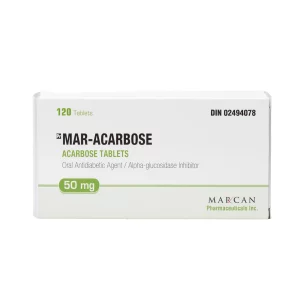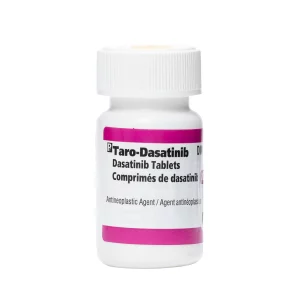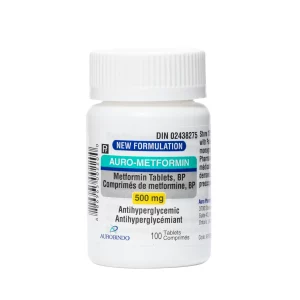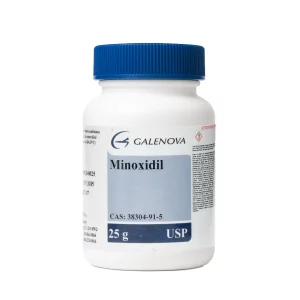Your cart is empty.
Your cart is empty.
Vardenafil is a medication commonly prescribed to treat erectile dysfunction, but many people wonder what is Vardenafil and how it works. Sometimes, users find themselves experiencing Vardenafil not working as expected, which can be frustrating. If you’re considering ways to improve your sexual health and overall wellness, you might want to buy Vardenafil to boost your daily life safely and effectively. Understanding how this drug functions and what affects its performance can help you get the best results.
Vardenafil is a drug known as a PDE5 inhibitor. PDE5 stands for phosphodiesterase type 5, an enzyme found in blood vessel walls. By blocking PDE5, vardenafil relaxes smooth muscle tissue and increases blood flow. This effect is why it is often prescribed to treat ED.
While vardenafil is FDA-approved specifically for erectile dysfunction, scientists have been studying its other effects on the body. Researchers are interested in how vardenafil’s action on blood vessels and cellular signals might also impact inflammation.
Inflammation is the body’s natural way to fight infection and heal injuries. When you get a cut or a cold, your immune system causes swelling, redness, and warmth, these are signs of acute inflammation, which usually lasts a short time.
However, chronic inflammation is when this immune response continues longer than it should. Chronic inflammation can slowly damage healthy tissues. It plays a major role in many health problems such as heart disease, liver damage, and lung disorders. Keeping inflammation under control is important for maintaining good health and preventing disease.
Vardenafil works by blocking PDE5, which increases levels of a molecule called cyclic GMP (cGMP). This molecule helps relax blood vessels and also affects how cells communicate. One important factor involved is nitric oxide (NO), a gas that helps regulate blood flow and immune responses.
These molecules, NO and cGMP, can influence inflammation. For example, they help reduce oxidative stress, which is an imbalance between free radicals and antioxidants in the body that can cause tissue damage. By improving blood flow and reducing oxidative stress, vardenafil might lower inflammatory signals in tissues.

Some of the most promising studies on vardenafil’s anti-inflammatory potential come from animal research focused on the liver. The liver is a key organ that can suffer from inflammation and injury due to conditions like cholestasis (a blockage of bile flow) or fibrosis (scarring).
In these studies, vardenafil helped reduce liver inflammation, oxidative stress, and fibrosis. It seemed to protect hepatic tissue by lowering levels of inflammatory markers and preventing excessive scarring. This suggests that vardenafil might help the liver heal and function better after injury.
Emerging research also looks at how vardenafil might reduce inflammation in the lungs. Lung inflammation can occur in conditions like asthma or chronic obstructive pulmonary disease (COPD).
In animal models of lung inflammation, vardenafil was shown to reduce the number of inflammatory cells and lower the levels of harmful cytokines, molecules that promote inflammation. This points to a possible role for vardenafil in treating lung inflammation and related conditions.
Scientists believe several mechanisms explain vardenafil’s potential anti-inflammatory effects. One is reducing inflammasome activation, inflammasomes are protein complexes in immune cells that trigger inflammation. Lowering their activity can calm the immune response.
Vardenafil may also influence gene expression related to inflammation, helping turn off genes that promote tissue damage. Additionally, it reduces oxidative stress, protecting cells from damage caused by free radicals.It’s important to note that most of this evidence comes from early-stage, preclinical studies in animals or cell cultures.

Traditional anti-inflammatory drugs, such as NSAIDs (like ibuprofen) or corticosteroids, directly block inflammation by suppressing the immune system. While effective, these drugs can sometimes cause side effects like stomach irritation or immune suppression.
In contrast, vardenafil acts indirectly. It works through vascular and cellular signaling pathways rather than directly blocking immune cells. This could mean fewer side effects and a different way to manage chronic inflammation in the future.
Chronic inflammation speeds up aging by damaging blood vessels and organs. Reducing this inflammation helps keep tissues healthy longer and may protect against age-related diseases.
Because vardenafil improves blood flow and reduces inflammation, it could one day be part of strategies to support longevity and healthy aging. This is especially interesting for people who want to stay healthy and prevent chronic conditions.
While the early results are promising, vardenafil for anti-inflammatory purposes is not currently an approved treatment. The research so far is mostly in animals and small studies. More human trials are needed to confirm its safety and effectiveness for reducing inflammation.
If you are thinking about using vardenafil beyond its approved use for ED, it is important to talk to a healthcare provider first. Off-label use means taking a drug for a purpose it is not officially approved for, which can carry risks and potential drug interactions.
Discuss your health goals and concerns openly with your provider to find safe and effective options for managing inflammation or other health issues.
Vardenafil may help reduce inflammation by improving blood flow and influencing immune signals, but research is still early.
Yes, animal studies show it may reduce liver injury, oxidative stress, and fibrosis.
It’s possible, but it’s not currently approved for this use. More human studies are needed.
It works differently by affecting blood vessels and cell signaling rather than directly suppressing the immune system.
That is unknown. Current research has not yet explored long-term anti-inflammatory use.
Only under medical advice. It is not an approved treatment for inflammation at this time.


Acarbose blocks carbohydrate breakdown in the small intestine, preventing rapid glucose absorption spikes.

Dasatinib eliminates senescent cells through selective apoptosis, clearing age-damaged tissues from the body.

Metformin inhibits hepatic glucose production while enhancing insulin sensitivity, offering cost-effective Type 2 diabetes management.

Minoxidil dilates scalp blood vessels, increasing nutrient delivery to hair follicles while extending the anagen growth phase duration.
Unlock savings on bundles and elevate your online experience today!